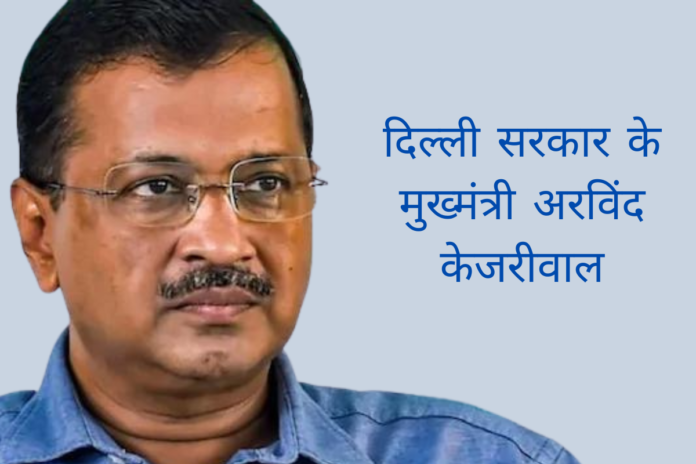During hearing on May 3, the Supreme Court stated that a decision regarding the interim bail of Delhi’s Chief Minister, Arvind Kejriwal, is still pending. Additionally, it mentioned that it will rehear the case on May 7th.
In summary:
– The Supreme Court will make a decision on Arvind Kejriwal’s interim bail on May 7th.
– The Supreme Court emphasized the need for transparency to prevent any surprises.
– Arvind Kejriwal has been in Delhi’s Tihar Jail since April 1st in connection with the liquor policy case.
The court hinted on Friday that it may grant interim bail to Delhi’s Chief Minister, Arvind Kejriwal, who is currently in jail, although it clarified that no decision has been made yet on the matter. The court asked the Enforcement Directorate (ED) to seek instructions on whether interim bail can be granted and under what conditions.
During the conclusion of the hearing on the petition filed by Kejriwal challenging his arrest by the ED, oral comments from Justice Sanjeev Khanna and Justice Deepankar Datta were presented. They addressed the issue raised by Kejriwal, where Kejriwal challenged his arrest by Enforcment Directorate.
“The duration of this case might be prolonged. However, should it extend, we may deliberate on the matter of interim bail, considering the electoral context,” remarked the bench.
“We’ll be listening to your arguments next Tuesday, May 7th, and expect you to be ready to discuss the issue of interim bail in light of the upcoming elections. Please ensure you have the necessary guidance on this matter, including any conditions that may need to be imposed. We’re asking for this clarity to avoid any unexpected developments,” asked the bench from Additional Solicitor General SV Raju, representing the ED.
The bench then posted the matter for further hearing on May 7.
Justice Khanna asked Raju to respond to this aspect as well, “Can Kejriwal still sign on his official files?”
Upon hearing this, the ASG responded, Your statement will be exaggerated.
JJustice Khanna then remarked, “This is the challenge with open court proceedings.” He emphasized that the court is neither confirming nor denying the possibility of granting bail.
Justice Khanna told both sides, “We are not saying anything in any way. We are open about it. Do not assume anything.”
Kejriwal was arrested in the Delhi Liquor policy case on March 21st.
During the proceedings, the bench questioned the ED, stating, “You have invoked section 70. Consequently, according to your assertion, AAP is considered the primary accused. There cannot be two primary accused for a single offense. The CBI has not pressed charges against him. Although the investigation is ongoing, Kejriwal has not been charge sheeted.”
Raju clarified, “Adjudication is unnecessary.”
In response, Justice Khanna reiterated, “If AAP is considered the primary accused, and so far, no adjudication proceedings have been initiated against AAP, can Kejriwal be arrested?”
ASG Raju replied, “Confiscations can occur without adjudication, as per the provisions of the act.”
Senior Advocate Abhishek Manu Singhvi, representing Kejriwal, contended, “Initially, all co-accused in my case remained silent. Subsequently, they made sudden statements. It’s essential to recognize that the actions of a political party cannot be automatically attributed to its convener, treasurer, and others.”
He questioned, “Apart from being the convenor of AAP, what evidence links Kejriwal to the allegations made by the ED?”
“Consider a scenario where a company is implicated in a case. Can its Managing Director (MD) be arrested? Kejriwal cannot be subjected to arrest based solely on vicarious liability,” Singhvi asserted to the bench.
At this, the bench said, “That is not how vicarious liability works, every person in charge and responsible is liable to be prosecuted. Is there any averment in the reasons to believe that he is being arrested on account of Section 70 of PMLA?”
Singhvi replied, “Simply mentioning a company’s name does not warrant the arrest of its Managing Director.”
Justice Khanna then remarked, “If you hold an overarching responsibility within the company, you bear vicarious liability alongside the company. Subsequently, you must demonstrate that the actions were conducted without your awareness.”
In reply, Singhvi stated, “Your consideration was not directed towards political parties; rather, it pertained to business entities. It carries a business undertone. The association of individuals will adopt its characteristics accordingly.”
Justice Khanna then remarked, “An association of people encompasses a society.”
Singhvi then referred to the ED’s response and stated, “The ED alleges his involvement in kickback demands. However, there is no direct evidence supporting this claim. Furthermore, this pertains to an offense under the Prevention of Corruption Act, not money laundering.”


